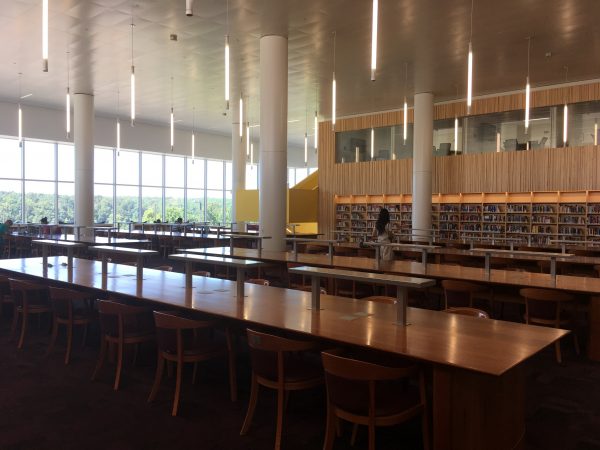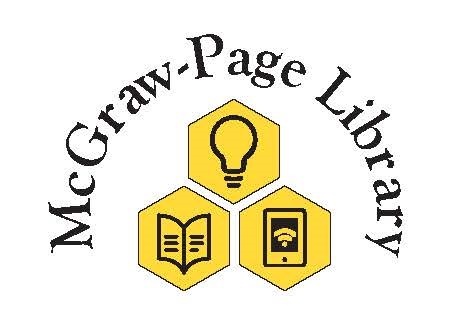In May 2018, staff of the McGraw-Page Library finalized the Library’s new strategic plan. Intended to set the strategic direction for the next five years, the strategic plan includes new mission and vision statements, and outlines the Library’s top priorities. My posts over the next few months will introduce the strategic plan.
McGraw-Page Library Mission
The McGraw-Page Library supports the mission of the College by providing quality resources and innovative services that foster lifelong learning through exploration, discovery, and creativity.
The Library is an integral part of Randolph-Macon College academic success. We provide resources that support student projects and, to a somewhat lesser extent, faculty research, and those resources are vetted according to our professional standards. That means that we don’t just add the latest bestseller on a topic, but we evaluate publishers, authors, and platforms and read reviews to ensure that high-quality resources are available. Similarly, we look at our services, and at ideas for new services, in light of campus need and the value that a service can provide the library and the College.
The goal to foster lifelong learning is found on many college campuses, and in many library mission statements, because the value of a college education cannot be truly experienced until after graduation. If learning only happens for the four years a student attends classes, its ability to impact the rest of their life is severely limited. But if a student can continue to learn, and thus adapt to the changes that life brings, their potential for success is higher. So the mission of the library is not to serve up ready-made, easily-digested packets of information, but to provide the tools needed for students to find what they need, explore what they’re interested in, and broaden their horizons. This puts students in control of the process and prepares them for the complex information environment that exists in the “real world.”
McGraw-Page Library Vision
The McGraw-Page Library strives to be the intellectual center of Randolph-Macon College. We encourage multi- and inter-disciplinarity through active participation in the academic and creative life of the College. We create vibrant, welcoming physical and virtual environments that support teaching, learning, research, and discovery. We collect, preserve, promote, and facilitate access to the best scholarly and educational resources in a variety of formats, and excel at innovative and responsive services. We educate members of the campus community in the use of academic and technological resources in order to prepare them for a complex information environment. We foster a culture of inclusiveness that reflects and respects the diversities of our community.
As the intellectual center of the R-MC campus, the Library would like to be a neutral space in which members of different disciplines, both students and faculty, can meet to share ideas and projects. It is easy to focus on one’s own major or area of interest and to simply be unaware of the research or conversations happening elsewhere. The library would like to be a place where interdisciplinarity and multidisciplinarity can thrive, where projects can be showcased, where students can learn from one another’s work.
We have a vision that our physical space will be intellectually and creatively inspiring to those who use it, as well as easy to navigate and use. We plan to continue investing in our physical and digital collections so that they support the College’s evolving curriculum, as well as faculty research, and so that they reflect the diversity of the campus community. We view the library not as a passive repository for resources that are available on-demand, but as a proactive organization that is reaching out to users, engaging with them, and educating them about the tools, resources, and processes that can help them succeed both academically and beyond.
Next month’s post will explore the McGraw-Page Library’s values and priorities, and in March and April, our five strategic goals will be introduced.


 I am pleased to introduce the new McGraw-Page Library logo. This logo represents several months of collaboration with the
I am pleased to introduce the new McGraw-Page Library logo. This logo represents several months of collaboration with the